7 Craziest Failed Las Vegas Projects

Posted on: December 21, 2023, 03:17h.
Last updated on: December 21, 2023, 03:49h.
The Las Vegas skyline is already insane. It features a half-scale Eiffel Tower, a roller coaster that screams past the Statue of Liberty’s head, and an Egyptian sphinx 46 feet taller than the real one. The Strip just debuted a globular concert venue wrapped in the world’s largest LED screen, and is about to start building a giant guitar you can sleep in.
Believe it or not, it could have been crazier. Here are seven projects that could easily have materialized if luck went their way …
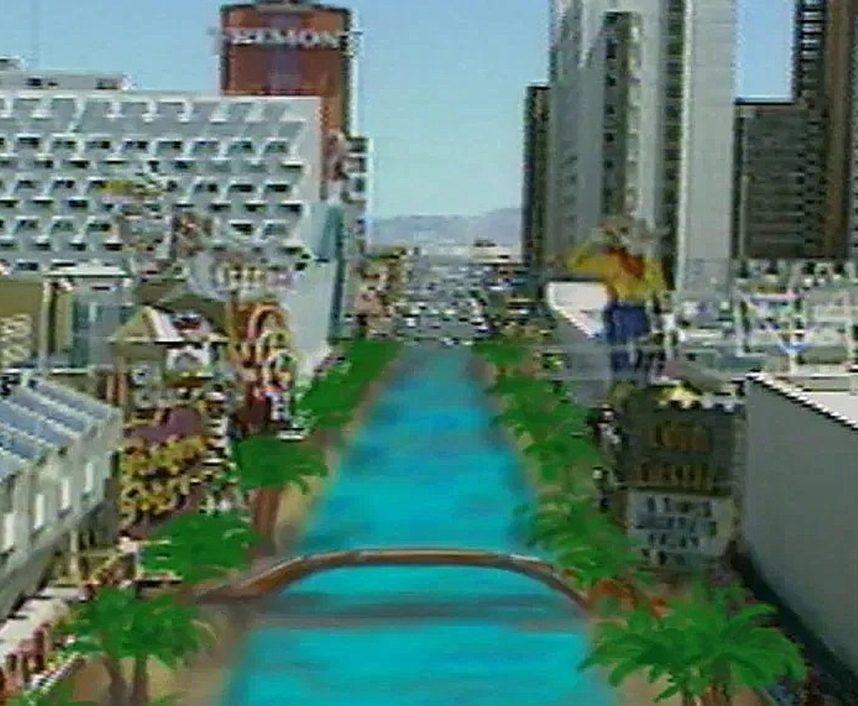
7. Viva Las Venice
In 1991, downtown Las Vegas had a problem. The Strip was booming while it was just aging. Slowly over the previous 30 years, Las Vegas’ tourism had flipped from 80% downtown and 20% on the Strip to the opposite.
Two years before he helped make the Fremont Street Experience canopy a reality, Steve Wynn, the Golden Nugget owner riding high on the success of his recently opened Mirage, had a very different solution to revitalizing the streets of downtown’s gambling district.
It was to remove and replace them with a $25M series of canals, jammed with rentable gondolas and banked by sandy beaches, from South Main Street to South 3rd Street.
Though the waterways would have used recycled wastewater, the project, dubbed “Las Venice” by the media, faced vocal criticism about environmental irresponsibility that ultimately drowned it.
But the idea may have lived on, at least in the mind of Sheldon Adelson, who knocked down the Las Vegas Sands five years later to build The Venetian.
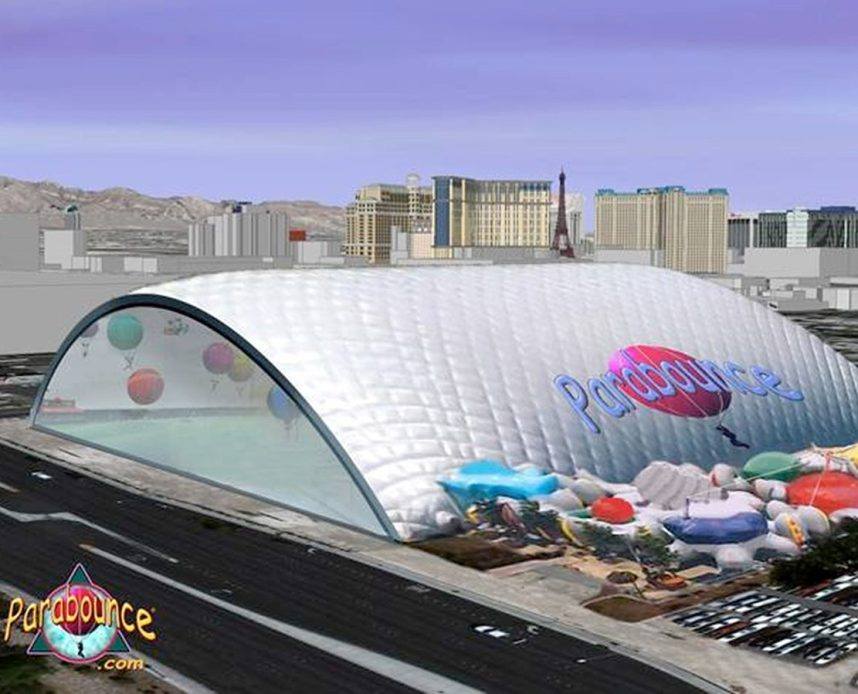
6. Idea Bounced
Parabounce Las Vegas was an attraction that promised to strap 20 people into 22-foot helium balloons, then send them soaring hundreds of feet in the air in a 100K square-foot bubble dome.
Think of it as “3-D bumper cars,” said Stephen Meadows, who conceived the project in 2010 for his company, One Giant Leap.
Or as an amusement park for personal injury attorneys.
Either way, it never took off.
5. $100M WWF Casino Not 100% WTF
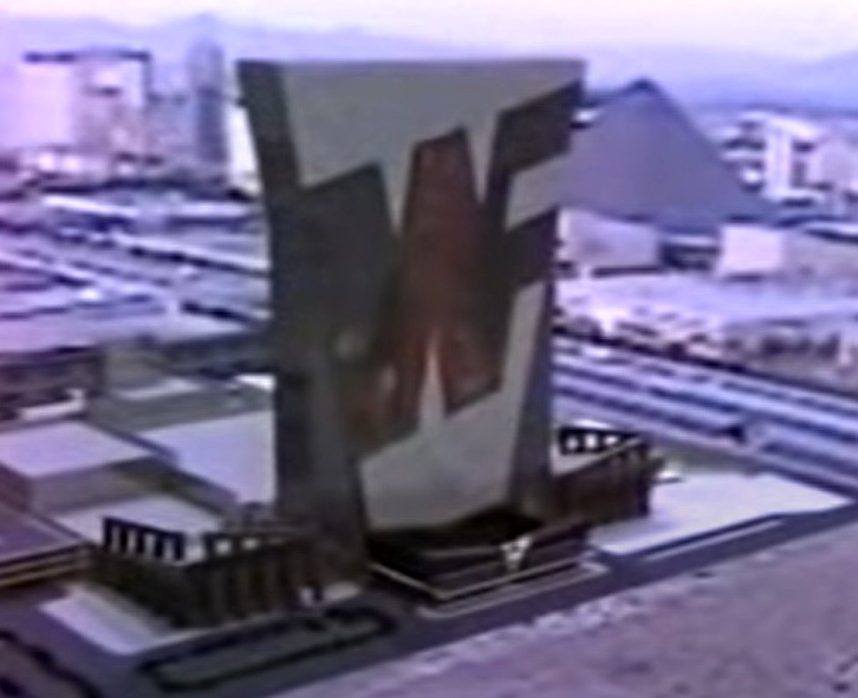
In 1998, the World Wrestling Federation (WWF), today’s World Wrestling Entertainment (WWE), purchased the failed Debbie Reynolds Hotel & Casino, at 305 Convention Center Drive, for $10.6M at auction.
Vincent and Linda McMahon, who co-founded WWF in 1980, planned to raze the 200-room hotel and build a mammoth, $100M altar to professional wrestling. It would feature rooms themed after The Rock and other icons of the sport, and host regular wrestling matches in its entertainment showroom.
But the hotel’s footprint wasn’t big enough for those dreams. In 2000, the WWF sold the property for a $1M profit, never returning to the idea. The property operated as the Greek Isles Hotel and Casino from 2001 to 2009, then the Clarion Hotel and Casino from 2009 to 2014, and is now a parking lot.
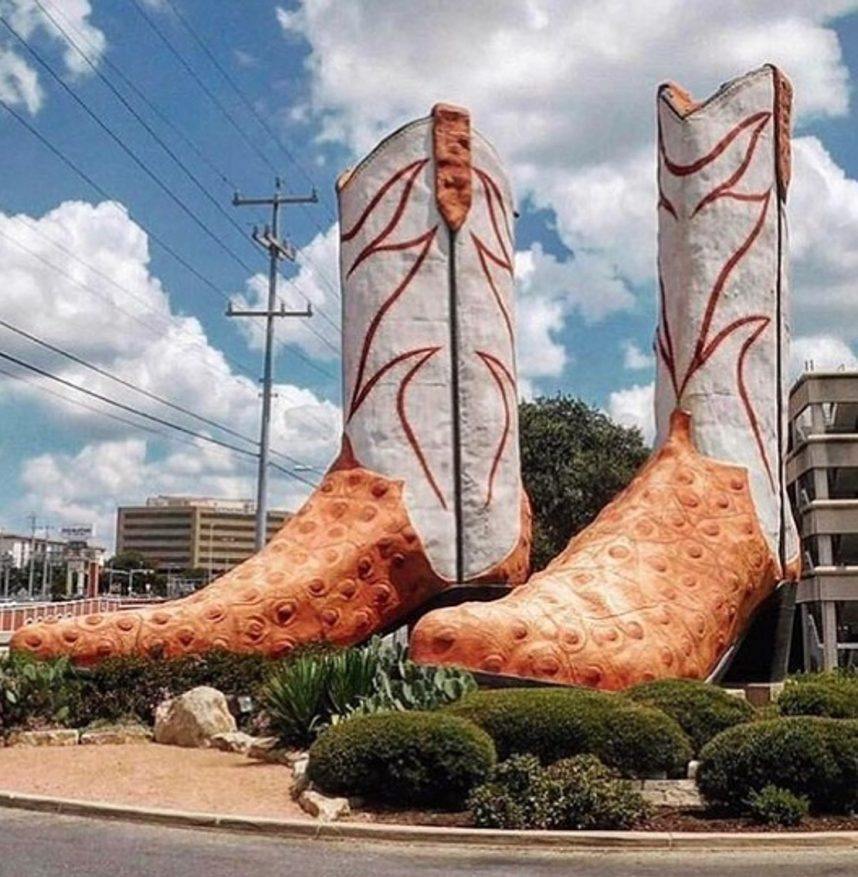
4. Countryland USA Booted
The original Thunderbird, which opened on the future Las Vegas Strip in 1948, became the Silverbird in 1977, and then a second El Rancho in 1982 before closing for good 10 years later.
In November 1993, an LA-based television production company bought the resort for $36.5M, planning to redevelop and reopen it as El Rancho’s Countryland USA. According to its plans, it would have featured two 20-story hotel towers that mimicked cowboy boots.
The project never found financial footing. The property changed hands twice more before the El Rancho’s last remaining structure, a 13-story hotel tower, was imploded in 2000 by Turnberry Associates, which planned to build a London-themed resort on the land that never happened, either.
Today, the plot houses the newly opened Fountainebleau.
3. Promising the Moon
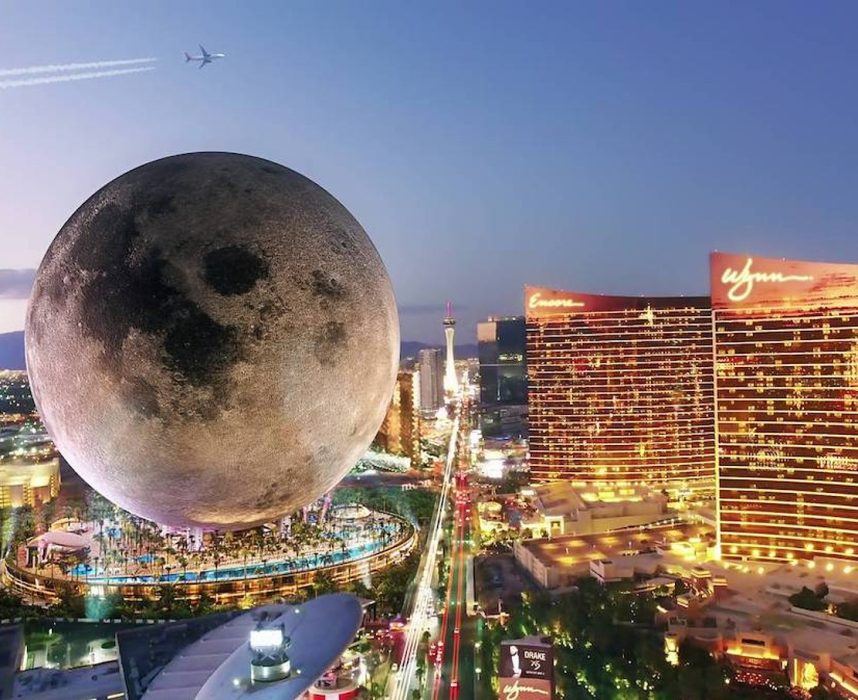
Michael Henderson, a Canadian who co-founded Lasik Vision, has been trying to land his $5B lunar vision in Vegas since he first shopped it to investors in 2002.
As proposed, Moon would stand 735 tall and 650 feet wide. Beneath its surface would rise 4,000 hotel suites. A 300K square-foot top floor would be a replica lunar surface where 90-minute walks would cost $500 per pop.
The artificial satellite would sit atop a three-tiered platform featuring hundreds of shops, a 10K-seat arena, and a 130K square-foot casino that would presumably play “Fly Me to the Moon” an awful lot of times.
Odds are, it will never be built in Las Vegas, though. Its 250-acre footprint, more than double the size of CityCenter, is just too massive. According to its owners, Moon is shooting for Dubai now.
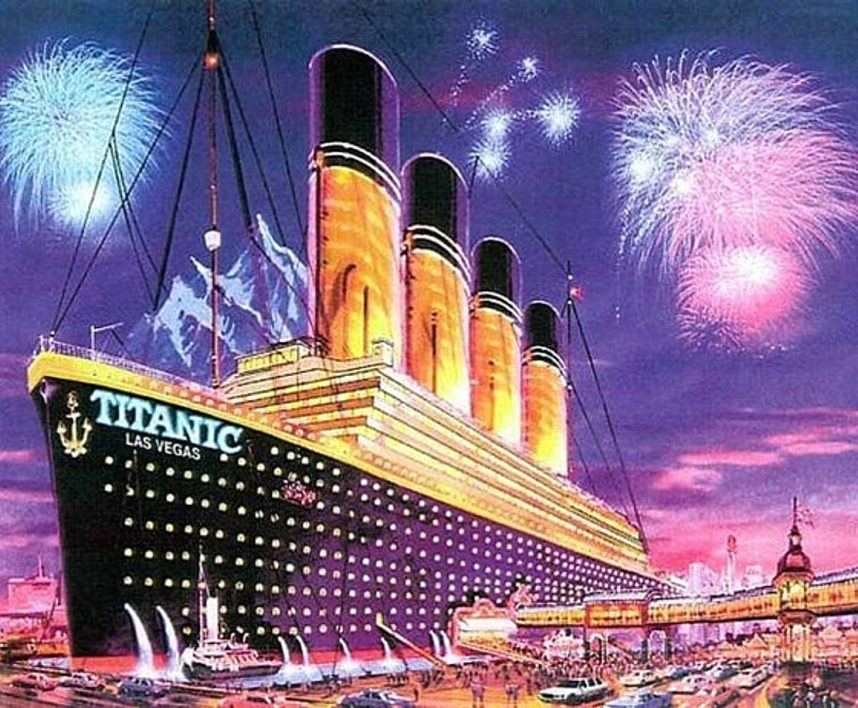 2. Titanic Sinks Again
2. Titanic Sinks Again
Titanic, which shortly after its 1997 release became the highest-grossing movie of all time, inspired Bob Stupak to plan a themed casino resort in downtown Vegas.
In 1999, the Vegas casino legend who opened the Stratosphere three years earlier, announced plans to construct a 280-foot tall re-creation of the doomed ocean liner on the site of his Thunderbird Hotel at Las Vegas Boulevard just south of Charleston Boulevard.
The fake vessel was budgeted at $300M-$400M. That’s more than the $198M it cost (in today’s dollars) to build the real McCoy. Stupak’s Titanic would have stood 100 feet taller.
It would have featured 1,200 hotel “cabins,” including 800 timeshares to help with its financing. It would have boasted a parking garage fashioned after Titanic’s home port of Southampton, England, and a retail complex shaped like an iceberg.
Ultimately, it wasn’t an iceberg or hubris that sank this Titanic, but the Las Vegas Council.
1. Enterprising Idea
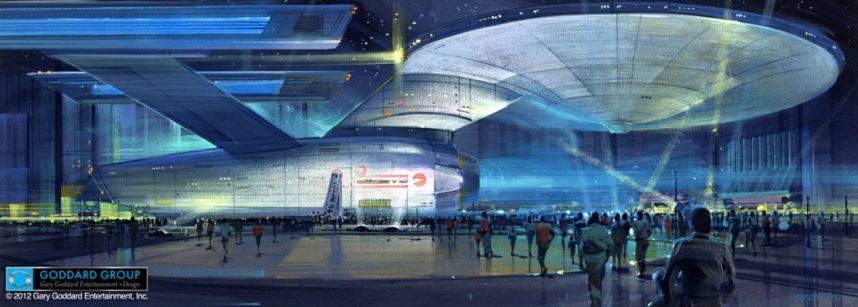
This brings us back to our departure point. The Starship Enterprise was another idea proposed for Fremont Street before it settled on the iconic canopy.
Proposed by Landmark Entertainment Group in 1992, the installation would have been a full-scale version of “Star Trek’s” USS Enterprise parked in the middle of a closed-off Fremont Street. At 1,000 feet long, it would have doubled the size of the Strip’s fake Eiffel Tower.
Entertainment designer Gary Goddard conceived of the project, winning a contest about how to revitalize downtown, and for a hot second, it looked ready to launch as a sure thing.
The $150M project was to include key rooms, chambers, decks, and corridors from the TV ship, as well as rides and restaurants. There would be no hotel rooms or casino , however. That’s because it would be fully funded by 10 neighboring downtown casino resorts, and they didn’t want the competition — only the curious tourists it would siphon downtown from the Strip.
Paramount Pictures, which controlled the Star Trek franchise, agreed to let the project proceed in exchange for a licensing fee of $5M once it received a green light from the city of Las Vegas, which governs downtown.
Goddard and a former engineer at Disney Imagineering drew up plans that excited Mayor Jan Jones Blackhurst and a downtown redevelopment committee. Before the Las Vegas City Council could put it to a vote, however, Paramount got cold feet.
According to Goddard, Paramount head Stanley Jaffee worried that the attraction was too much of a gamble — that if it tanked, it would take the “Star Trek” brand down with it.
“I couldn’t believe it,” Goddard told the Hollywood Reporter in 2016. “This thing would still be there today. It would be bigger and more powerful than ever. It would have been a monument to the world. It would have been iconic.”
Source link



